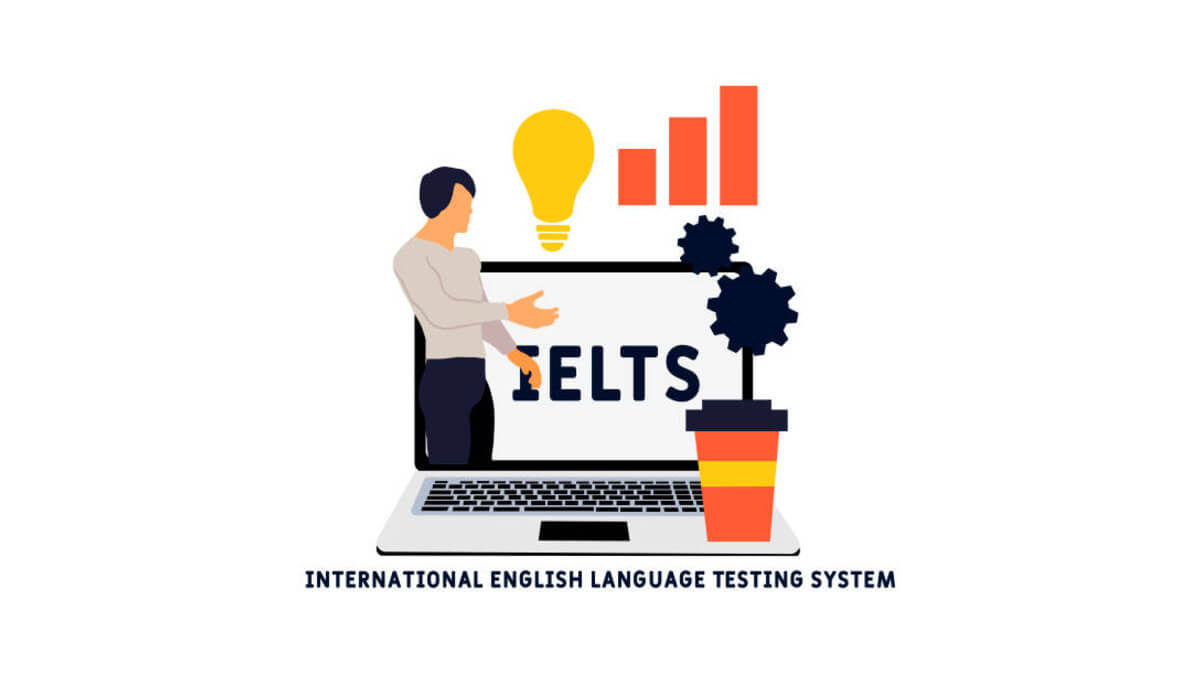IELTS Score and Scoring System
IELTS (International English Language Testing System)is an international exam established by the British Council alongside other recognized bodies such as Cambridge University Press, and IDP IELTS.
The exam tests the proficiency of non-native English speakers in the four main areas of the use of the English language. The four areas include: Reading, Writing, Listening, and Speaking.
Passing the areas shows that the candidate has a good command of the English language.
Furthermore, IELTS assessments are divided into two categories: Academic and General Training. For those who intend to pursue undergraduate or graduate studies in an English-speaking nation, the Academic test is appropriate.
Advertisement
Also, check out All You Need to Know about Chartered Accountancy.
The General Training test is intended for people who want to immigrate to an English-speaking nation or are looking for work. The validity of the test results is two years after the test date.
It is essential to know the scoring system and to calculate your overall band score if you want to take or will take the IELTS exam.
Hence the reason why we have prepared this post for you. Here, you will learn about band scores and how to calculate the overall band score.
What is a band score and how to calculate your overall band score?
You probably will come across the term “band score” when preparing for your IELTS exam or have written one. It is simply a term whose meaning is equivalent to your score for each test in an IELTS exam.
As stated earlier, the IELTS exams are divided into 4 sections: Reading, Listening, Writing, and Speaking. Each test has its grade expressed using a band scale system. The band scale system has a score of 0-9 for the grading of the performance of the candidates
Advertisement
Aside from each test having its band score, there is an overall band score equivalent to the average score of the total band score obtained by the candidate.
In this section, we will explore how one can calculate the band score and what band score is the safe-zone mark to obtain.
For the reading test, there are forty questions in total which you will answer. The score for each answer is one mark and the total score gets converted to the corresponding band score.
For easier calculation, the table below gives the equivalent score for the number of correct answers for the academic reading test
| Correct Answers | Equivalent Band Score |
| 10 -12 | 4.0 |
| 13-14 | 4.5 |
| 15-18 | 5.0 |
| 19-22 | 5.5 |
| 23-26 | 6.0 |
| 27-29 | 6.5 |
| 30-32 | 7.0 |
| 33-34 | 7.5 |
| 35-36 | 8.0 |
| 37-38 | 8.5 |
| 39-40 | 9.0 |
The second table is for the general reading test. The table contains the corresponding band score for the number of correct answers
| Correct Answers | Equivalent Band Score |
| 19 – 22 | 4.5 |
| 23 – 26 | 5.0 |
| 27 – 29 | 5.5 |
| 30 – 31 | 6.0 |
| 32 – 33 | 6.5 |
| 34 – 35 | 7.0 |
| 36 | 7.5 |
| 37 -38 | 8.0 |
| 39 | 8.5 |
| 40 | 9.0 |
Listening Test
The table below contains the equivalent band score for the correct answers for both the general and the academic modules of the listening test
| Correct Answers | Equivalent Band Score |
| 11 -12 | 4.0 |
| 13-15 | 4.5 |
| 16-17 | 5.0 |
| 18-22 | 5.5 |
| 23-25 | 6.0 |
| 26-29 | 6.5 |
| 30-31 | 7.0 |
| 32-34 | 7.5 |
| 35-36 | 8.0 |
| 37-38 | 8.5 |
| 39-40 | 9.0 |
Writing
The scoring of the writing aspect of the IELTS depends on four deciding factors that indicate your mastery of writing in English. These factors include:
Task Achievement
As a measure, it is the extent to which a candidate addressed each element of the task, developed a relevant position, and backed up their ideas with examples, arguments, and details.
Coherence and Cohesion
Points to how well a candidate aligns his ideas in an organized manner and allows them to flow into one another logically and clearly.
Lexical Resources
the lexical resource is a criterion to measure how vast the stock of vocabulary the candidate knows and how he or she can use them to convey a clear message o
Grammatical Range and Accuracy
Accuracy and appropriateness of the candidate’s use of grammar and sentence types.
Speaking
Also, the grading of the speaking test is similar to that of writing as it depends on certain criteria for the evaluation of the performance of the student. The criteria for scoring the candidates include:
Fluency and Coherence
Fluency refers to a candidate’s ability to speak with ease and without hesitations, pauses, or repetitions.
Lexical Resource
It refers to a candidate’s ability to use a wide range of vocabulary accurately and appropriately.
Grammatical Range and Accuracy
Knowledge of tenses, modal verbs, conditionals, and reported speech as well as grammatical structures
Pronunciation
It refers to a candidate’s ability to produce sounds, stress, and intonation patterns clearly and understandably.
Also, check out The Importance of Technology in Education.
Calculating Overall Band Score for IELTS
It is simple to calculate the overall band score. The process is the same way you calculate averages. Add your scores for each test and divide the results by 4.
As a rule of thumb, if the average of the four sections ends in .25, the band score will be rounded up to the next half band, and if it ends in .75, it will be rounded up to the next whole band.
The table shows the actual overall band score depending on your average score:
| Range of Average Scores | Actual Overall Band Score |
| 5.25 – 5.74 | 5.5 |
| 5.75 – 6.24 | 6.0 |
| 6.25 – 6.74 | 6.5 |
| 6.75 – 7.24 | 7.0 |
| 7.25 – 7.74 | 7.5 |
| 7.75 – 8.24 | 8.0 |
| 8.25 – 8.74 | 8.5 |
Assume your band score for each test is as follows:
- Reading – 7.5
- Listening – 6.5
- Speaking – 6.0
- Writing – 5.0
Then, the total band score is 7.5 + 6.5 + 6.0 + 5.0 which is 25.0. The total band score, 25.0 divided by 4 gives 6.25. From the table above from the rule of rounding up of band score, the overall band score is 6.5.
What is a good IELTS Score?
The reason you are taking the test will determine what a good IELTS score is. The IELTS score criteria may vary between organizations and institutions. A good IELTS score is typically one that satisfies or surpasses the prerequisites for the test’s intended use.
A good result can satisfy the minimum standard specified by the university or program, for instance, if you are taking the IELTS test for university entrance.
A score of 6.0 or higher on the IELTS Academic test is frequently regarded as a good score for undergraduate studies, while a score of 6.5 or above may be required for graduate studies. These requirements can vary greatly depending on the institution and the program.
In addition, a good IELTS score satisfies the requirements established by the immigration authority of the nation you are applying to if you are taking the exam for immigration purposes.
For instance, in Canada, certain immigration programs may demand an IELTS General Training score of 6.0 or above, while other programs may call for a score of 7.0 or higher.
Finally, the definition of a good IELTS score ultimately depends on your unique objectives and situation. It’s critical to research the specifications of the institutions or organizations to which you are applying and to work toward obtaining a score that satisfies or surpasses those specifications.
IELTS score equivalent to other international exams
It is possible to translate IELTS scores into comparable results on other standardized English language competence examinations. Depending on the test, a different conversion scale may be used, as well as scales from other institutions and organizations. Here are some typical IELTS comparable scores:
- IELTS Academic: A score of 6.5 is equal to an IELTS Academic score of 80 on the TOEFL iBT.
- Exams administered by Cambridge English: Advanced (CAE): A score of 6.5 on the IELTS Academic test equates to a grade of C1 on the CAE.
- Pearson Test of English (PTE): An IELTS Academic score of 6.5 is similar to a PTE Academic score of 58.
- Benchmark for Canadian Language (CLB) Scores from IELTS can be translated into CLB levels which are used for immigration purposes in Canada. For example, a score of 6.0 on the IELTS General Training test is equivalent to a CLB level of 7, while a score of 7.0 is equivalent to a CLB level of 8
Final Notes on IELTS Score and Scoring System
The IELTS scoring system is simple and easy to understand. The post contains information that makes it understand what the scoring system for IELTS is and how it is done.







4 Comments
Comments are closed.